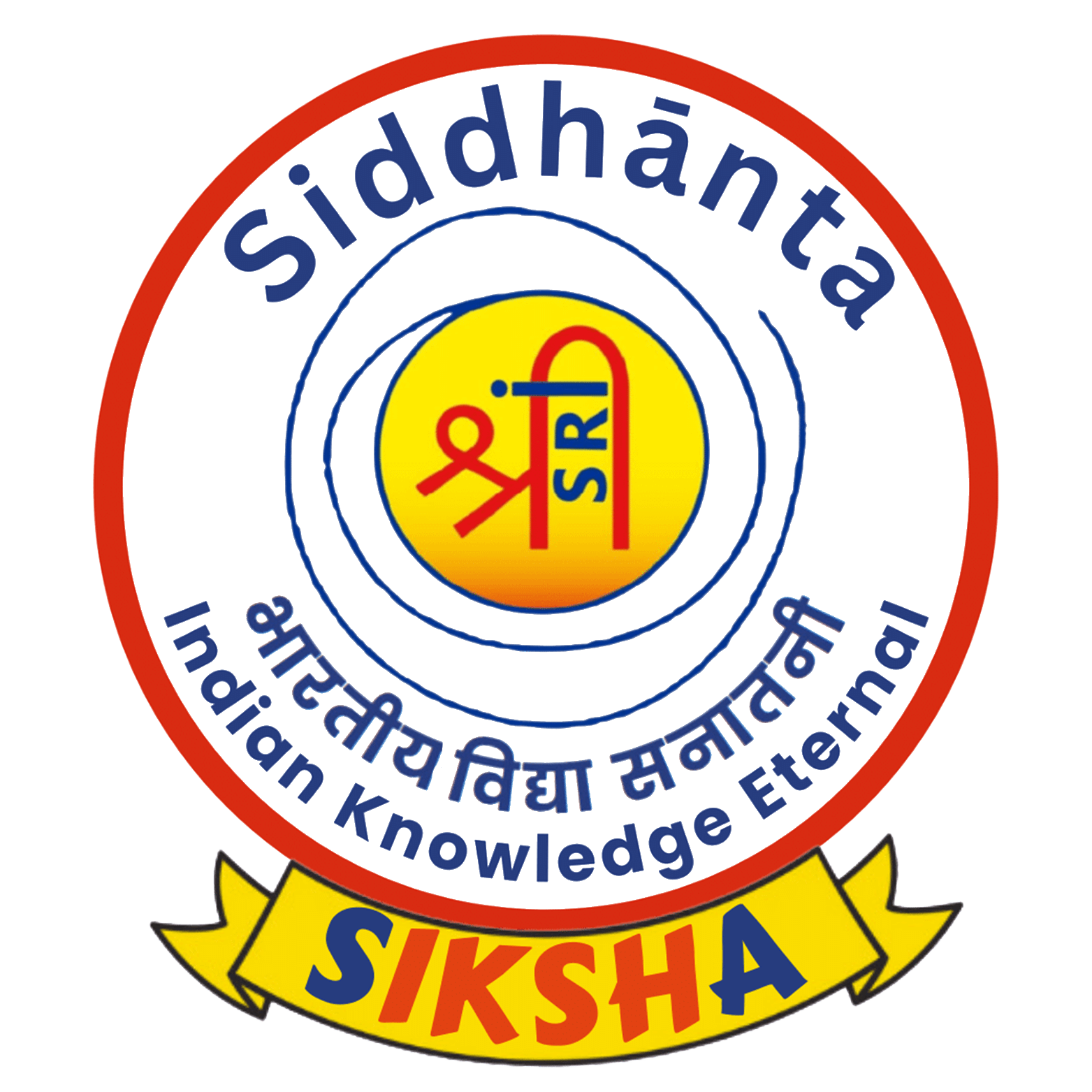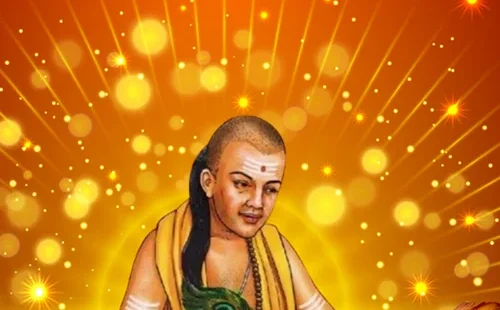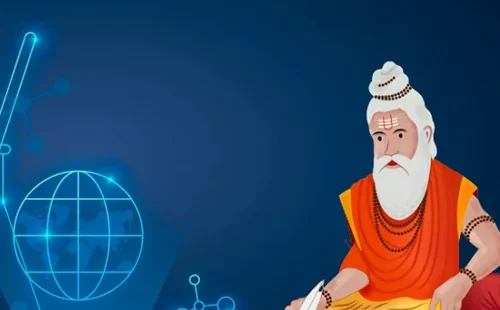
Indic Meta Thinking - Knowledge about Knowledge
- 30 Hours
-
2 Credits
*(T&C Apply) Credits applicable only for Undergraduate and Postgraduate students enrolling for SIKSHA courses through academic institutions based in India.
- UG
- Foundation, Arts and Humanities, Education, Management
₹5,000.00(GST additional)
About The Course
"The Indic Meta-Thinking program represents a comprehensive exploration of India's profound philosophical and epistemological traditions, offering participants an immersive journey into the sophisticated cognitive frameworks that have shaped Eastern thought for millennia. This interdisciplinary program bridges ancient wisdom with contemporary understanding, examining how traditional Indian knowledge systems approach the fundamental questions of cognition, consciousness, and valid knowledge. At its core, this program investigates metacognition—the awareness and understanding of one's own thought processes—through the lens of classical Indian philosophical schools, particularly the Nyaya-Vaisheshika tradition. Participants will engage with the rich tapestry of Indian epistemology, exploring how ancient scholars developed systematic approaches to understanding perception, inference, and extraordinary forms of knowledge that transcend ordinary sensory experience. The program uniquely integrates philosophical inquiry with practical applications, examining how traditional concepts of yogic perception (Yogaja Pratyakṣa) and intuitive knowledge (Pratibha) can inform modern approaches to cognition and consciousness studies. Through rigorous analysis of classical texts and methodologies, participants will develop both theoretical understanding and practical skills in critical thinking, logical reasoning, and philosophical analysis. This comprehensive curriculum spans three progressive units, moving from foundational concepts through advanced epistemological mechanisms to sophisticated logical structures and cognitive analysis. The program is designed for scholars, practitioners, educators, and anyone seeking to understand the profound contributions of Indian philosophical traditions to human knowledge and consciousness studies."
Syllabus
- Unit I – Foundations of Indic Meta-Thinking
- ● Module 1: Introduction to Metacognition – Understanding the significance, processes, and methods of metacognition
- ● Module 2: Exploring Indian Knowledge Systems – Foundations, historical significance, and modern relevance
- ● Module 3: The Fourteen Vidyasthanas – Analysis of the foundational knowledge branches in Indian tradition
- ● Module 4: Astika and Nastika Philosophical Traditions – Comparison and cultural implications of Vedic and non-Vedic schools
- ● Module 5: Perspectives on Knowledge – Philosophical and cognitive interpretations of knowledge
- ● Module 6: The Object of Cognition – Nyaya-Vaisheshika's seven padarthas and their relevance
- ● Module 7: The Creation of the Universe – Nyaya-Vaisheshika cosmology and its philosophical underpinnings
- ● Module 8: Knowledge and the Self – Cognition and the nature of Atman in Nyaya-Vaisheshika philosophy
- ● Module 9: Classification of Knowledge – Types of knowledge and memory in Nyaya-Vaisheshika thought
- ● Module 10: Perception (Pratyaksha) – Foundational role and analysis in Nyaya philosophy
- Unit II – Cognitive Mechanisms and Epistemology
- ● Module 11: Inference (Anumana) – Components, processes, and applications in reasoning
- ● Module 12: Principles of Valid Inference – Ensuring sound reasoning and avoiding logical fallacies
- ● Module 13: Upamana and Shabda – Comparison and verbal testimony as means of knowledge
- ● Module 14: Arthapatti and Anupalabdhi – Postulation and non-cognition as epistemological tools
- ● Module 15: Sensory Perception (Pratyaksha) – Exploration across Indian and Western philosophical traditions
- ● Module 16: Sensory Organs and Perception – Nyaya perspectives and comparisons with modern science
- ● Module 17: Touch and Hearing – Philosophical and psychological interpretations
- ● Module 18: Functioning of the Senses – Direct and indirect mechanisms in sensory perception
- ● Module 19: Sense-Object Relationships – Exploring direct and layered connections in perception
- ● Module 20: Advanced Sense-Object Relationships – Philosophical debates and modern interpretations
- Unit III – Extraordinary Knowledge and Yogic Insights
- ● Module 21: The Mind (Manas) – Role and interplay with sensory experiences in Indian philosophy
- ● Module 22: Types of Perception – Ordinary and extraordinary perception in Nyaya philosophy
- ● Module 23: Extraordinary Perception (Alaukika Pratyaksha) – Understanding universals and their role in cognition
- ● Module 24: Sāmānyalakṣaṇa – Bridging individual instances and universal categories
- ● Module 25: Jñānalakṣaṇa – The role of past knowledge in shaping current perceptions
- ● Module 26: Expanding Perception – Interplay of inference, memory, and sensory inputs
- ● Module 27: Yogaja Pratyakṣa – Transcendental perception and its foundations in yoga
- ● Module 28: Pratibha (Intuitive Knowledge) – The role of disciplined meditation in achieving intuitive foresight
- ● Module 29: Pratibha and Yogaja Knowledge – Validity and evidence for transcendental perception
- ● Module 30: Final Exploration of Yogaja-Pratyaksha – Integrating yogic intuition and universal truths
- Unit IV – Types of Cognition and Inference
- ● Prama (Valid Cognition)
- ● Bhrama (Non-valid Cognition)
- ● Process of Bhrama
- ● Causal Analysis of Bhrama
- ● Validation of Prama and Determination of Bhrama
- ● Anumana (Inference) – Process of Anumana
- ● Classification of Anumana
- ● Svartha Anumana (Inference for oneself)
- ● Parartha Anumana (Inference for others)
- ● Vyapti (Pervasion)
- ● Types of Hetu
- Unit V – Logical Structures and Cognitive Fallacies
- ● Pancha-avayava (Five-membered Syllogisms) – Introduction to Dialectics
- ● Components:
- ○ Pratijna (Proposition or Thesis)
- ○ Hetu (Reason)
- ○ Udaharana (Example)
- ○ Upanaya (Application)
- ○ Nigamana (Conclusion)
- ○ Objectives of Each Avayava
- ● Hetvabhasa (Causal Fallacies):
- ○ Savyabhichara (Erratic or Fallacious Reason)
- ○ Sadharana (General)
- ○ Asadharana (Special)
- ○ Anupasamhari (Non-limiting)
- ○ Viruddha (Contradictory Reason)
- ○ Satpratipaksha (Counteracting Reason)
- ○ Asiddhi (Unestablished Reason)
- ■ Ashraya-asiddhi (Unestablished Substratum)
- ■ Svarupa-asiddhi (Unestablished Nature)
- ■ Vyapyatva-asiddhi (Unestablished Pervasion)
- ○ Badha (Contradiction or Refutation)
More Information
- Learning Objectives
-
- ● Foundational Understanding
- ○ Establish comprehensive knowledge of Indian philosophical systems, particularly Astika and Nastika traditions
- ○ Understand the historical development and contemporary relevance of the fourteen Vidyasthanas (knowledge branches)
- ○ Develop familiarity with key concepts in Nyaya-Vaisheshika philosophy, including the seven padarthas (categories of existence)
- ● Epistemological Mastery
- ○ Master the six pramanas (means of valid knowledge): Pratyaksha, Anumana, Upamana, Shabda, Arthapatti, and Anupalabdhi
- ○ Understand the sophisticated analysis of sensory perception and its relationship with cognition
- ○ Explore the nature of extraordinary perception and transcendental knowledge states
- ● Logical and Analytical Skills
- ○ Develop proficiency in the Pancha-avayava (five-membered syllogism) system of logical reasoning
- ○ Learn to identify and analyze various types of logical fallacies (Hetvabhasa)
- ○ Apply principles of valid inference (Vyapti) in philosophical and practical contexts
- ● Metacognitive Development
- ○ Cultivate enhanced self-awareness of cognitive processes and thinking patterns
- ○ Understand the distinction between valid (Prama) and invalid (Bhrama) cognition
- ○ Develop skills in recognizing and correcting cognitive errors and biases
- ● Integration and Application
- ○ Bridge traditional Indian epistemology with contemporary cognitive science and philosophy
- ○ Apply yogic principles of transcendental perception to modern understanding of consciousness
- ○ Synthesize diverse philosophical perspectives into coherent frameworks for analysis
- ● Cross-Cultural Philosophical Literacy
- ○ Compare and contrast Indian and Western approaches to epistemology and logic
- ○ Understand the unique contributions of Indian philosophy to global philosophical discourse
- ○ Develop appreciation for diverse cultural approaches to knowledge and reasoning
- ● Practical Wisdom
- ○ Apply philosophical insights to contemporary challenges in education, research, and personal development
- ○ Develop enhanced critical thinking skills applicable across disciplines
- ○ Cultivate deeper understanding of the relationship between knowledge, consciousness, and spiritual development
- ● Foundational Understanding
- Intended Outcomes
-
- ● Theoretical Mastery
- ○ Comprehensive understanding of Indian philosophical schools, particularly Nyaya-Vaisheshika epistemology
- ○ Proficiency in the six pramanas (means of valid knowledge) and their applications
- ○ Knowledge of advanced concepts including yogic perception and transcendental cognition
- ● Analytical Skills
- ○ Mastery of traditional Indian logical structures, including the five-membered syllogism
- ○ Ability to identify and analyze logical fallacies (Hetvabhasa) and reasoning errors
- ○ Enhanced metacognitive awareness and self-reflective thinking capabilities
- ● Practical Applications
- ○ Integration of ancient wisdom with contemporary approaches to knowledge and consciousness
- ○ Improved critical thinking and philosophical argumentation skills
- ○ Enhanced capacity for cross-cultural philosophical dialogue and research
- ● Personal Transformation
- ○ Deeper understanding of the relationship between knowledge, consciousness, and self-realization
- ○ Development of practical wisdom applicable to daily life and decision-making
- ○ Greater appreciation for the complementary nature of diverse knowledge traditions
- ● Program Impact
- ○ A transformative educational experience that bridges India's philosophical heritage with contemporary understanding
- ○ Enrichment of participants' cognitive capabilities through intellectual rigor and contemplative wisdom
- ● Theoretical Mastery


















